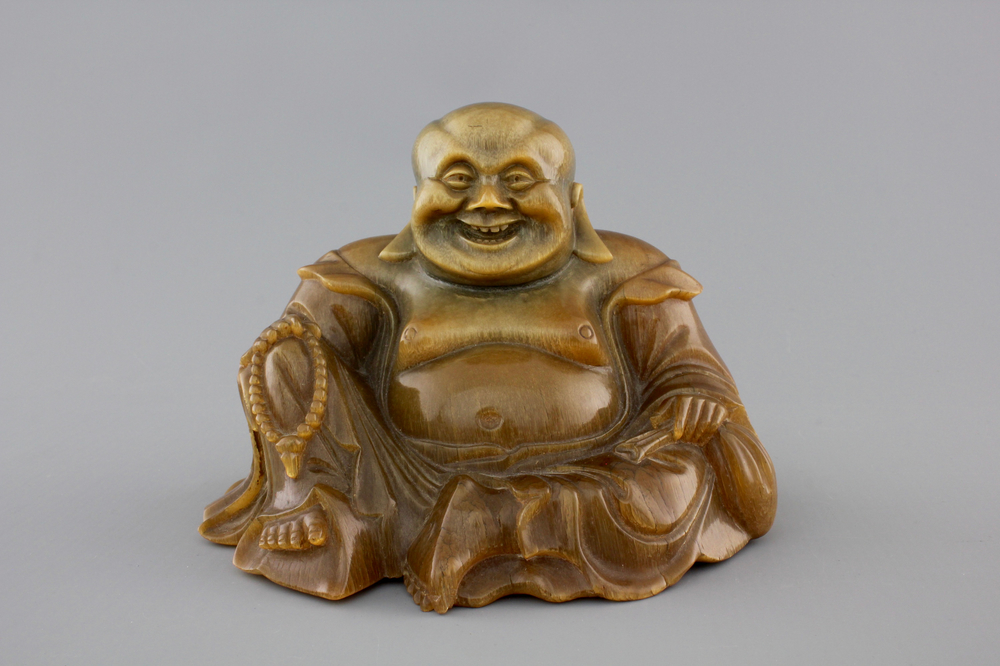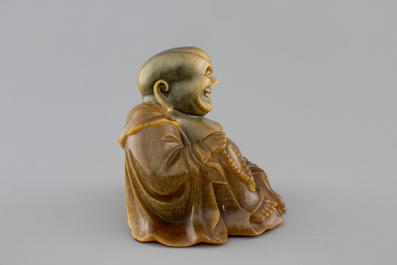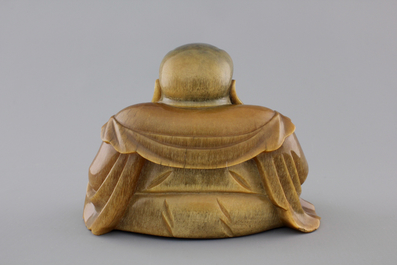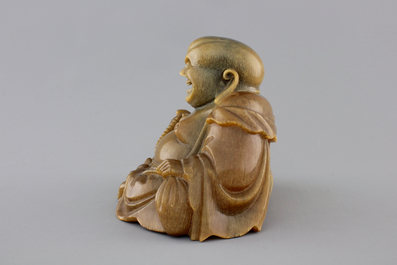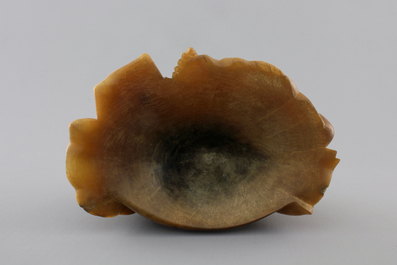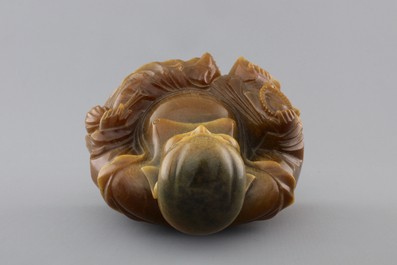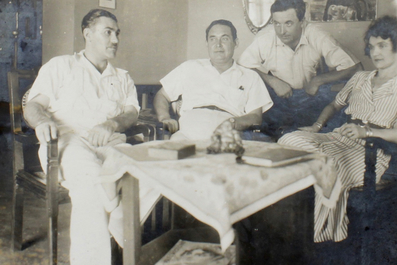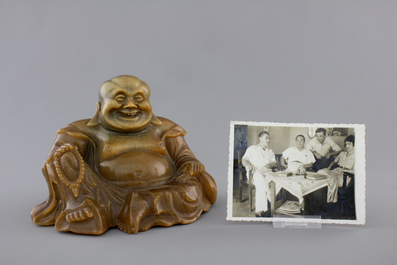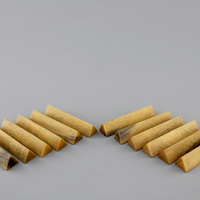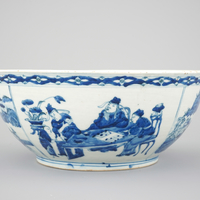We have to double-check your registration and make sure this is not an automated entry in our system. Please complete the test below...
A very rare Chinese carved rhinoceros horn Buddha figure, 19th C.
Please note that we strongly oppose the illegal trade in rhinoceros horn
products. This set was legally acquired and can, according to CITES
regulations, be legally traded.
Exportation of this piece outside of the EU is prohibited by Cites regulation.
The
piece comes with a hand-written provenance description, and the
original photo of the owner with the statue in Belgian Congo.
Dim.: 13,4 x 18,2 cm
Weight: 1,061 kg
Provenance: Acquired in Belgian Congo, before 1936, when it was brought to Belgium by a family member of the present owner. Accompanied by a photograph made in Kilo, Congo, ca. 1930.
The monk Budai, also known as the Laughing Buddha, is an
incarnation of the Bodhisattva Maitreya, the Buddha predicted to succeed
Gautama Buddha in the future. Typically depicted with a joyful
expression and wearing loose fitting robes to reveal his plump stomach
seated representing contentment and abundance, Budai is also
associated with the protection of children and is often shown with small
children playfully climbing on his belly or back.
Figural carvings from rhinoceros horn are rare but the most common depictions include Manjusri and Budai. Another carving of Budai formerly in the Ruth Dreyfus and Arthur M. Sackler collections is illustrated by Thomas Fok, Connoisseurship of Rhinoceros Horn Carving in China, Hong Kong, 1999, p. 117 no.69, and again by J. Chapman, The Art of Rhinoceros Horn Carving in China,
Hong Kong, 1999, no. 327 and was sold at Christie's New York, 1
December 1994, lot 28. Another related example formerly in the George
and Mary Bloch collection illustrated by J. Chapman, The Art of Rhinoceros Horn Carving in China, Hong Kong, 1999, no. 327, was sold at Sotheby's Hong Kong, 23 October 2005, lot 34.
A rhinoceros horn carving of Budai attributed to the late Ming dynasty but lacking a reign mark in the Palace Museum, Beijing is illustrated in The Complete Collection of Treasures of the Palace Museum - Bamboo, Wood, Ivory and Rhinoceros Horn Carvings, Shanghai, 2001, no. 138; and another in the Shanghai Museum, is illustrated in Shanghai bowuguan Jikan, vol. 6, 1992, fig. 28.
Another Budai carving, attributed to the Wan-Li period, was sold at Christie's, Hong Kong, May 27, 2008, Important Chinese Rhinoceros Horn Carvings from the Songzhutang Collection, lot 1727.
Condition: Excellent.
